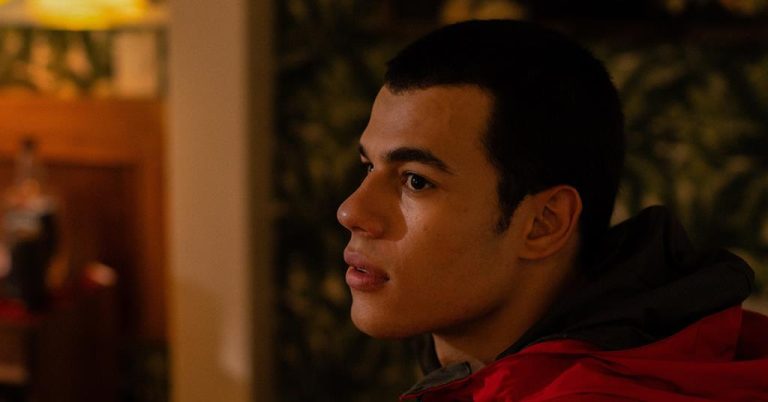
Surviving São Paulo’s Mean Streets In Marcelo Caetano’s ‘Baby’
25 October, 2024Baby (2024) is the second feature film directed by Marcelo Caetano (Body Electric, 2017), who also co-wrote the script with Gabriel Domingues. The film premiered in the Critic’s Week at the 2024 Cannes Film Festival and was screened as part of the recent BFI London Film Festival.
Baby shows the difficult reality of many queer individuals in Brazil — and in many other countries around the world — who need to resort to prostitution and drug dealing for survival after they’re deserted by their families for their sexual orientation or gender identity. It follows the character Wellington — earnestly played by JoãoPedro Mariano — who leaves a juvenile detention centre in São Paulo on turning 18; the reason of his arrest being speculated but never disclosed during the film.
He searches for his parents but cannot find them in the apartment where they lived. Wellington takes to the streets and reconnects with his group of queer friends in the city centre. At a cinema where pornographic films are shown, Wellington meets an older male escort with whom he becomes acquainted. With nowhere to sleep, he goes back to the home of the young man, Ronaldo — convincingly played by Ricardo Teodoro.
At Ronaldo’s suggestion, Wellington begins to work as an escort and deal drugs, adopting the alter ego Baby. They become partners both in bed and in business. Ronaldo introduces Baby to Priscila (played by the excellent Ana Flavia Cavalcanti), the mother of his 13-year-old son. Priscila is in a same-sex relationship with Jana (Bruna Lizmeyer). Between them all, they establish a harmonious relationship. Later in the film Ronaldo and Priscila take Baby from São Paulo to the town of Salto in search of his parents – we already know at this point that his father was a police officer who did not approve of Baby’s sexual orientation. But here Baby will find an opportunity to meet and reconnect with his mother, which eventually leads him to regain some of his confidence and fight for a better future for himself.
Sadly, the lack of character development makes it difficult for the audience to connect with the film’s subjects. The transitions between scenes are sometimes abrupt and clunky — like when Baby is suddenly shown sick in bed without any build up to it. However, the film’s greatest flaw is that it tries to pack too much without allowing time for its events to gain meaning and its characters to have any gravitas.
Brazil is a country with progressive laws for LGBTQIA+ people. Yet, it is also considered the most homotransphobic country in the world, where one person in this population lost their life to violence every 34 hours in 2023, according to statistics released by the Latin American NGO, Bahia Gay Group (GGB). Despite its problems, Baby is an important effort to show the hardships of the least affluent members of the LGBTQIA+ community amidst the chaos of urban life, and also the camaraderie that bonds them. The film would have probably benefited from showing more of the latter.
Follow Sounds and Colours: Facebook / Twitter / Instagram / Mixcloud / Soundcloud / Bandcamp
Subscribe to the Sounds and Colours Newsletter for regular updates, news and competitions bringing the best of Latin American culture direct to your Inbox.

